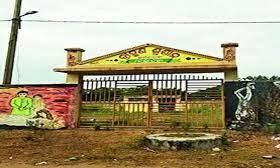
Odisha civic body criticised for 'Brahmins only' crematorium
text_fieldsA civic body in Odisha, the Kendrapara Municipality, has come under severe criticism for operating a crematorium exclusively designated for Brahmins, sparking outrage over caste-based discrimination even in funeral rites.
At the Hazaribagicha locality burning ghat in Kendrapara, the oldest civic body in the eastern state, a conspicuous sign reading 'Brahmin Crematorium' has been erected at the entrance. This exclusivity in cremating Brahmins has reportedly been a longstanding practice at the site. However, the official signage was recently installed after the facility underwent renovation, funded by government grants.
Local sources revealed that people from other castes are directed to use a nearby crematorium, also renovated recently, segregating the communities based on caste lines.
Prafulla Chandra Biswal, the Executive Officer of Kendrapara Municipality, acknowledged the issue and assured action, stating, "Yes, the issue has come to our notice and we are looking into it. Steps will be taken to set right the alleged caste discrimination."
The discriminatory practice has drawn criticism from Dalit rights activists and political figures, with Nagendra Jena, the district unit president of Odisha Dalit Samaj, expressing shock and denouncing the municipality's actions. "By doing so, the government body is breaking the law and promoting caste discrimination. This practice should be put to an end at the earliest."
Gayadhar Dhal, CPI(M) district unit secretary, emphasised the illegality of a civic body running a crematorium exclusively for Brahmins.
He highlighted the constitutional rights of individuals from all castes, stressing that denying other communities the right to perform last rites at the cremation ground is a violation of fundamental rights.
Dhal further condemned the allocation of a separate cremation ground for Brahmins, terming it as an endorsement of caste inequality and a direct contradiction to the principles of equality in the Constitution. The controversy has sparked further discussions about caste-based discrimination and the necessity to ensure equal rights for all in funeral practices.























